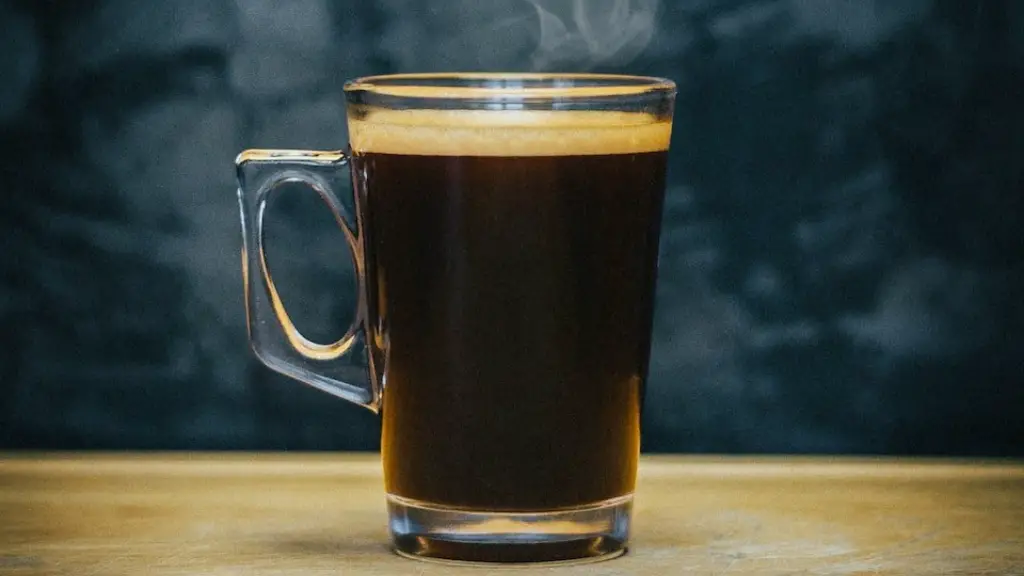Why drink decaf coffee?
Coffee is among the world’s most popular beverages with about 2.25 billion cups consumed daily. The amount of caffeine in coffee varies depending on how it is brewed and can range from 71 to 176 milligrams per cup. Despite its popularity, some people choose to consume decaf coffee instead as it has considerably less caffeine. But why choose decaffeinated coffee? According to experts, there are several benefits to drinking decaf.
Drinking decaf coffee offers more variety than drinking regular coffee and allows the consumer to enjoy more flavour profiles and try different types of coffee. Decaf drinkers can choose to enjoy the same coffee varieties as regular coffee drinkers, with just one difference – the absence of caffeine. One of the advantages of drinking decaffeinated coffee is that, although it still contains the same helpful antioxidants and nutrients, it eliminates the stimulating effects of caffeine. This makes it the ideal option for people who don’t enjoy the effects of caffeine or who need to avoid caffeine due to medical reasons. Decaf coffee also offers the same health benefits as regular coffee – it may reduce the risk of certain cancers, improve brain function, and protect the cardiovascular system.
Decaf coffee is also beneficial for individuals who have difficulty falling asleep. Caffeine stimulates the brain, making it more difficult to fall asleep, and decaf coffee eliminates this problem. Finally, decaf coffee may be a better choice for people watching their weight as it contains fewer calories than regular coffee. Although decaf coffee has the same energy-boosting benefits as regular coffee, it contains fewer stimulants. This makes it easier for the body to metabolize the sugar and fat released by the body, preventing them from being stored as fat.
Should You Choose Organic Decaf?
When buying decaf coffee, many consumers opt for organic decaf coffee. Organic decaf coffee has the same benefits as regular organic coffee, with the added advantage of no or low caffeine. Organic coffee is grown without the use of synthetic pesticides and fertilizers, so it is a more sustainable and environmentally friendly option. In addition, organic decaf coffee is free of synthetic chemicals and decaffeination solvents, so it is a healthier alternative. This makes it better for your health as it doesn’t contain chemicals that could have a negative impact on your body.
Organic decaf coffee also has a more natural flavor than regular decaf coffee. The process of decaffeination removes caffeine but also strips away the flavor of coffee beans. Organic decaffeinated coffee is processed in a more natural way, so the flavor is more intact. The coffee also has higher levels of antioxidants and healthful compounds, such as quinic acid, compared to regular decaf. This means that organic decaf coffee is a healthier and more flavorful option for coffee drinkers.
Concerns Around Buying Decaf
Despite the many benefits of drinking decaf, there are several potential downsides to consider. One downside to drinking decaf is that you’re missing out on the stimulating effects of caffeine. Many people rely on the energizing effects of caffeine, and without it, they may struggle to stay motivated or awake.
It is also worth noting that decaf is not caffeine-free. While it does contain very low levels of caffeine, it is still present. The amount of caffeine in decaf coffee can range from 2 to 12 milligrams, depending on the type and brewing method. This means that it may not be suitable for people who have to be completely caffeine-free.
Finally, decaf coffee may not be suitable for people who are sensitive to caffeine. Some people have a heightened sensitivity to the effects of caffeine and may experience uncomfortable symptoms, such as headaches, anxiety, and agitation. Decaf coffee may not completely eliminate these symptoms as it still contains some caffeine.
Deciding to Drink Decaf
The decision to drink decaf or regular coffee is entirely up to the individual. Both options contain beneficial antioxidants and nutrients and can offer similar health benefits. The choice often comes down to personal preference and lifestyle. If you are looking for a coffee without the stimulating effects of caffeine, decaf coffee may be the better option. However, if you crave the energizing effects of caffeine, regular coffee is the better choice.
When drinking decaf coffee, it is important to note that not all decaf coffees are the same. Many are processed with chemicals, which can leave an unpleasant taste or reduce the flavor of the beans. If you want to enjoy the full flavor of coffee without the caffeine, organic decaf coffee is your best option.
What About Decaffeinated Tea?
Decaffeinated tea offers many of the same health benefits as decaffeinated coffee, but with different flavors and aromas. Decaffeinated tea is tea that has had at least 97% of its caffeine removed and typically contains between 2-3 milligrams of caffeine per cup. Unlike decaffeinated coffee, many decaffeinated teas are processed without chemical solvents, making it a healthier option.
Decaffeinated teas offer all the flavor and aroma of regular tea without the stimulating effects of caffeine. This makes it an ideal option for people who want to enjoy the health benefits of tea without the stimulating effects of caffeine. It is also a great choice for people who prefer a lighter cup of tea. Decaffeinated tea is also less acidic than most regular tea, making it easier on the stomach and less likely to cause indigestion.
Floating Tea and Cup Tea
Floating tea and cup tea are two types of decaffeinated tea. Floating tea is decaffeinated green tea leaves that are manufactured in a special way to create an infusion without steeping. The tea is added directly to hot water, and the infusion is usually ready within minutes, making it a convenient choice for busy lifestyles. Cup tea is decaffeinated tea leaves that come pre-packaged in individually portioned tea bags, ready for steeping. Cup tea is an easy and convenient choice for busy tea drinkers.
When brewing either floating or cup tea, it is important to follow the instructions on the packaging carefully. This will ensure that you get the most flavor and nutrients from the tea. Additionally, always use fresh water when brewing, as it will have a direct impact on the flavor and aroma of the tea.
Which is Best? Decaf Tea or Decaf Coffee?
The question of which is the better option, decaf tea or decaf coffee, is ultimately a personal preference. They both contain the same amount of caffeine and offer many of the same health benefits. Coffee contains higher levels of antioxidants, while tea contains more of the amino acid L-theanine, which has been shown to improve cognitive function and reduce stress.
If you are looking for an energizing drink, regular coffee is typically the better choice. If you want to avoid caffeine for medical or other reasons, decaf coffee or tea are both good options. Ultimately, the choice comes down to personal preference.
Taking Care of Your Body with Decaf
It is important to be mindful of your body and its needs when consuming decaffeinated beverages. Decaf coffee and tea still contain some caffeine and consuming too much can cause unpleasant side effects. Everyone reacts differently to caffeine, so it is best to be aware of one’s individual tolerance. When drinking decaf, it is important to do so in moderation.
The quality of the decaffeinated product you are drinking matters too. When buying decaffeinated coffee or tea, make sure to pay close attention to where it comes from and the decaffeination method used. Always opt for organic and ethically sourced products, as they will contain fewer chemicals and fewer toxins.
Sticking with Decaf
Drinking decaf coffee or tea can be a great way to get the same health benefits as regular coffee or tea without the stimulating effects of caffeine. Decaffeinated beverages provide consumers with options that regular coffee and tea do not. They are a great way to enjoy the taste and aroma of coffee and tea without the caffeine.
When deciding to drink decaf, it is important to do your research and be aware of the potential downsides and side effects. Decaf coffee and tea have many health benefits and may be a great alternative to regular coffee and tea. Ultimately, the decision is up to the individual and it is important to find the right balance between regular and decaffeinated beverages.


